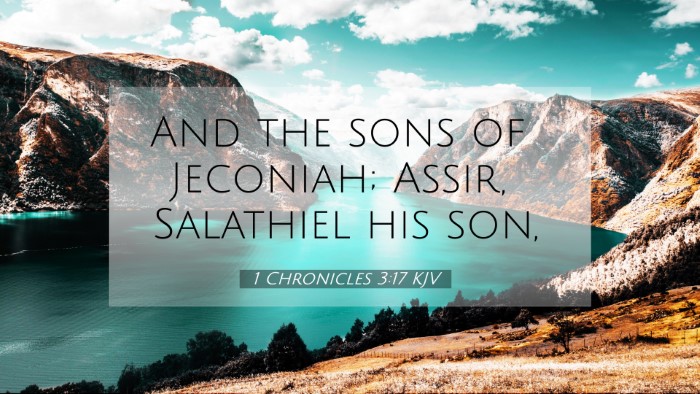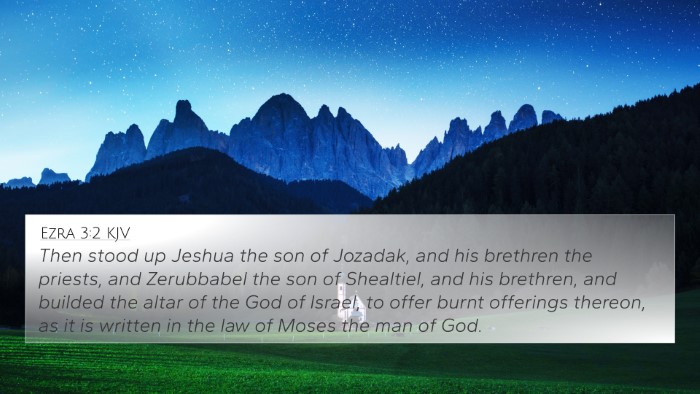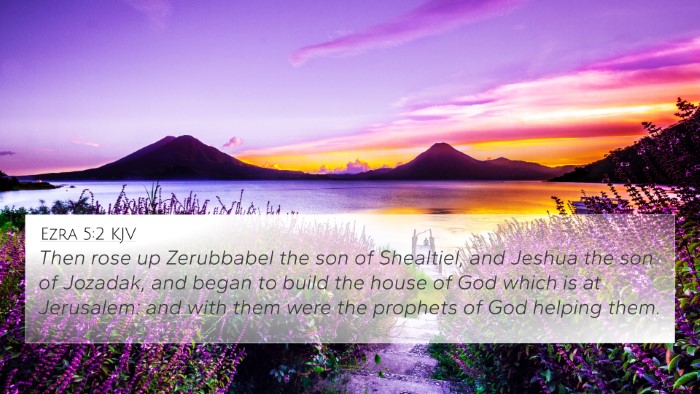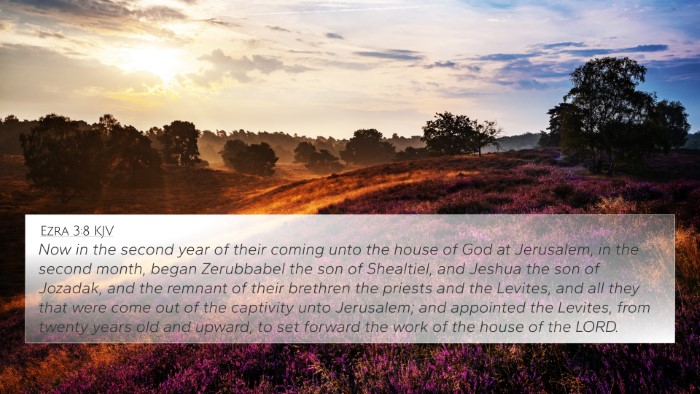Understanding 1 Chronicles 3:17
1 Chronicles 3:17 states: "And the sons of Jeconiah; Assir, Salathiel his son." This verse serves as a genealogical record within the larger context of David's family lineage, emphasizing the importance of heritage in biblical narrative.
In examining this verse through the lens of public domain commentaries, we draw insights from Matthew Henry, Albert Barnes, and Adam Clarke to better understand its significance and the connections it reveals within the broader biblical text.
Genealogical Significance
Matthew Henry notes that genealogies in the Bible illustrate God’s faithfulness in preserving His promises through successive generations. In this instance, the mention of Jeconiah’s sons highlights the royal lineage that leads to the eventual coming of Christ, linking both the Old and New Testaments.
Albert Barnes emphasizes that even within a list of names, God’s providence is at work. Assir and Salathiel are important figures in the lineage of Jesus as outlined in the Gospels, showcasing the theme of redemption and fulfillment of God's promises.
Adam Clarke elaborates on Salathiel, suggesting that he symbolizes the hope and restoration of Israel following exile, reinforcing how individual names contribute to a larger narrative of salvation and covenant.
Thematic Connections
1 Chronicles 3:17 can be cross-referenced with several significant verses:
- Matthew 1:12 - "And after they were brought to Babylon, Jeconiah begat Salathiel; and Salathiel begat Zorobabel."
- Luke 3:27 - "Which was the son of Joann, which was the son of Rhesa, which was the son of Zorobabel, which was the son of Salathiel, which was the son of Neri."
- Jeremiah 22:30 - "Write ye this man childless, a man that shall not prosper in his days: for no man of his seed shall prosper, sitting upon the throne of David."
- Ezra 3:2 - "Then stood up Jeshua the son of Jozadak, and his brethren the priests, and Zerubbabel the son of Shealtiel, and his brethren, and builded the altar of the God of Israel."
- Matthew 1:6 - "And Jesse begat David the king; and David the king begat Solomon of her that had been the wife of Urias."
- Zechariah 4:6 - "Then he answered and spake unto me, saying, This is the word of the LORD unto Zerubbabel, saying, Not by might, nor by power, but by my spirit, saith the LORD of hosts."
- Isaiah 11:1 - "And there shall come forth a rod out of the stem of Jesse, and a Branch shall grow out of his roots."
Cross-Referencing Biblical Texts
This passage exemplifies the concept of Biblical cross-referencing, a vital tool in understanding the interconnections between verses across both the Old and New Testaments. By utilizing tools for Bible cross-referencing, such as a Bible concordance or cross-reference Bible study guide, one can identify these links and form a comprehensive understanding of biblical themes.
Understanding the links between different Bible verses, such as between 1 Chronicles 3:17 and Matthew 1:12, reveals how genealogical records speak to the overarching narrative of God’s plan for humanity, often foreshadowing the New Testament's fulfillment of prophecy through Jesus Christ.
Inter-Biblical Dialogue
When engaging in comparative Bible verse analysis, one finds that the connections between verses reveal a rich tapestry that informs the theological understanding of Christ’s lineage. The study of these connections leads to a deeper appreciation of God’s sovereign hand in history as preserved through His chosen people.
Conclusion
In summary, 1 Chronicles 3:17 serves as a reminder of the significance of genealogy in the Scripture while also emphasizing the continuity of God’s promise across generations. Through the cross-referencing of Bible verses, we can appreciate how these ancient texts continue to affirm and enrich our understanding of God's redemptive work throughout history.






